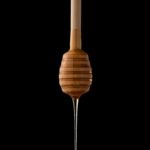
Courtesy of Russell Moore
On Oct. 9, members of Yale Hospitality took a field trip to Cecarelli Farms in Northford for a unique culinary experience.
Trading in aprons for overalls, the staff unearthed the first harvest of Jennifer potatoes and Maggie potatoes — two specialty varieties — planted on-site at Cecarelli for use in Yale’s dining halls. The potatoes were no ordinary store-bought vegetable. The seeds were bred in the Netherlands, and thanks to a new partnership between Holland-based potato seed breeder HZPC, New Haven-based Freshpoint Produce Distribution and Yale Dining, Yalies will soon be dining on the vegetable.
“Did you know that potatoes are 79% water and only 15% carbohydrate?” James Benson, director of culinary excellence at Yale, wrote in an email to the News. “We have been focused on a lot of plant-forward options in our menu and recipe development. We realized that potatoes were primarily used in french fries, mashed potatoes and baked potatoes — dishes which are typically considered to be high-carb. We decided that we needed to look for different varieties of potatoes with higher nutrients and positive environmental impact.”
This forward-thinking approach to the health benefits of potatoes drove the budding partnership. Benson added that the two specific varieties Yale is growing, Jennifer potatoes and Maggie potatoes, are instrumental in a balanced diet and are coveted for their faster cooking times, making them a good choice for student dining.
But outside of the health benefits students can get from eating the potatoes, the team emphasized the importance of events like the potato harvest on food literacy across campus.
“We are unapologetic about incubating new ideas and trends,” Benson said. “Even during the COVID-19 pandemic; our work did not stop. We continue our innovation not only through locally, regionally grown food — but better quality and ‘better for you’ food which is better for the planet. It’s important for us to remember where our food really comes from, and educate our students through these interactive experiences as well.”
The struggle to connect students to the food they eat and the people who grow it has only been exacerbated in the wake of the COVID-19 pandemic. The Yale Dining team has always been active in finding fun and interactive experiences to help students learn more about sustainability within food and learn about the work that goes into the food they eat. But with restrictions on travel and large groups, they have had to be innovative in connecting students with experiences like the one at Cecarelli Farms.
Still, the Yale Dining team has found a new medium for teaching: social media. Christelle Ramos, Yale Hospitality’s senior manager of marketing and communications, turned specifically to Instagram to capture a live video of the potatoes’ unearthing and cooking while at the farm.
“The opportunity to bring the story from the field to Yale in an experiential way — cooking on the field and broadcasting it real time — took insta-cooking to a new level, and I loved doing it!” Ramos wrote in an email to the News. “We’ve had over 200 views of our live video which demonstrates the interest and engagement with our students.”
The Yale Dining team hasn’t stopped there. Innovative events like the ongoing Apple Week encouraged students to learn more about the popular fruit and enjoy specialty dishes like Waldorf salads and apple cider with their dining hall meals. Other events like Indoor BBQ on Oct. 7 and Farmhouse Brunch on Oct. 4 are examples of the dining halls’ new experiences.
For Yale Culinary Excellence Manager Samantha Moore, the potato farm trip was a good reminder of the importance of learning about food growth.
“Any time I get to put my hands in the dirt brings me back to my roots coming from a family of farmers,” Moore said. “The opportunity to not only pick potatoes, but prepare and cook them right at the farm was awesome — and brings a new dimension to the term ‘farm to table.’”
The Yale Dining team plans on creating more varieties of the potatoes for future harvests.
Jordan Davidsen | jordan.davidsen@yale.edu








